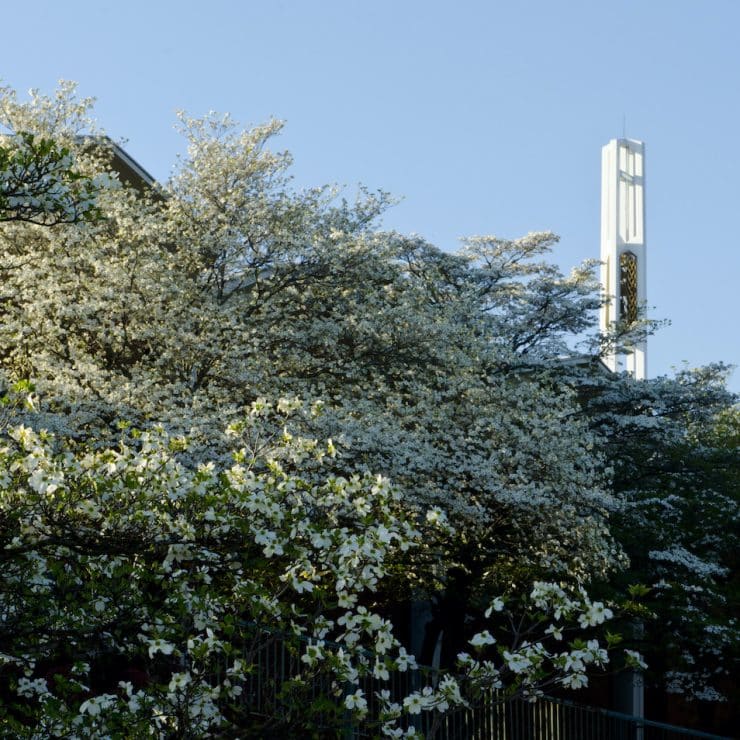
Ways to Give
Methodist University connects donors with projects that they are passionate about. There are many ways to give, and the University’s Advancement staff is on hand to assist you in which method best suits your individual needs. Contact the Office of Institutional Advancement at 910.630.7200 or toll-free at 800.488.7110, extension 7200 to discuss ways to give to MU.
There are many ways to give to MU include cash gifts, credit card gifts, pledges, matching gifts, gifts of real estate, and gifts of stock, bonds, and other securities. They may be delivered by mail, over the phone, through online donations, bank drafts, or through payroll deduction for MU employees.
Phone
Make a credit card gift over the phone by calling Methodist University at 910.630.7200 or toll-free at 800.488.7110, extension 7200.
Download a gift form and mail it along with your gift. Make checks payable to Methodist University and mail to: Office of Institutional Advancement Methodist University 5400 Ramsey Street Fayetteville, NC 28311
Other Ways to Give
After a potential donor to Methodist University has determined that he/she should consider a gift and the purpose toward which the gift is assigned, the next consideration is how the gift can be generated.
Obviously the most popular and logical answer to the “how” question is a gift of cash or appreciated securities. These gifts are, for the most part, available immediately to be used as the donor suggests and are tax-deductible at the time they are made. Often a gift or appreciated stock is particularly rewarding because it serves as a two-fold tax savings. First, the donor normally avoids capital gains tax on the increased value of the stock and second, the donor typically receives an income tax deduction for the fair market value of the stock.
Gifts of cash and/or appreciation securities can be used as support for Methodist University’s annual fund and for investment in any of the other projects and programs. That is, the donor’s gift may be used in the operating budget and/or as support for scholarships, endowments, naming opportunities and the other initiatives mentioned above.
In addition to the outright gifts described above, Methodist University welcomes planned, deferred and estate gifts that may represent the donor’s desire to provide larger, penultimate-type gift arrangements.
1. Gift of Property with Retained Right to Use
A donor may gift his/her residence or other property to Methodist University and continue to occupy same for lifetime of self and spouse or for a set period of time. The donor typically receives an immediate tax deduction for the gift. Moreover, the property will not be a part of the donor’s estate. Similar arrangements are available for a vacation home (or second home).
2. Life Income Gifts
A donor may make a life income gift to Methodist University and receive income for the gift. Annuity trusts, unit trusts and gift annuities are one of the many vehicles that are life-income gifts.
- Charitable Gift Annuity:
Donor transfers assets to Methodist University and the College agrees to make regular, fixed payments to donor for lifetime. Benefits include: immediate tax-deduction and possible savings on estate taxes and favorable capital gains tax consideration when appreciated property is given. - Deferred Charitable Gift Annuity:
Similar to above except donor(s) defers receipt of income for a term of years even though there is immediate tax deduction. May allow donor to receive tax deductions during high-income years, yet defer income on annuity until income and tax bracket are lower. - Charitable Remainder Annuity:
Donor creates a Charitable Remainder Annuity Trust with irrevocable gift of cash, securities, or property to Methodist University. Donor and/or designated beneficiaries receive fixed dollar income, at least annually, for lifetime. May also be arranged for a fixed period up to 20 years. Methodist University receives assets after lifetime. - Charitable Remainder Unitrust:
Similar to Charitable Remainder Annuity Trust in terms of structure. However, the Unitrust pays a percentage of assets, as valued annually, rather than fixed amount. - Charitable Lead Trust:
Different from other trusts in that Methodist University receives annual income for a specific period, after which assets return to donor or, in most instances, to a child or family member in next generation.
(IMPORTANT: DONOR SHOULD ALWAYS CONFER WITH ATTORNEY AND/OR FINANCIAL ADVISOR BEFORE ESTABLISHING A TRUST. METHODIST UNIVERSITY’S PLANNED GIVING COUNSEL ALSO HAS EXPERTISE IN THESE GIFT ARRANGEMENTS. ALL WILL EXERCISE CONFIDENTIALITY IN DISCUSSING OPPORTUNITIES, TAX BENEFITS AND OTHER ISSUES.)
3. Life Insurance
A gift of life insurance is a simple way to make a significant gift to Methodist University. If the donor assigns ownership to Methodist University there is an immediate tax deduction. With paid-up policy the deduction is equal to replacement value, unless value exceeds cost or pay basis. Then, deduction is limited to tax basis. If premiums remain to be paid, donor’s deduction is equal approximately to cash surrender value. Donor, however, may continue to pay premiums and be entitled to charitable contribution deduction.
4. Wills and Bequests
Perhaps the easiest and most popular procedure for a significant deferred gift to Methodist University is through a codicil or bequest in a donor’s will. There are several types of gifts through a will.
-
- Donor designates a specific gift to the University that may be funded with cash securities or property.
- Donor provides residing bequest and assigns residue to Methodist University after all other bequests have been made.
- Contingency bequests assign funding to Methodist University only after other bequests fail to qualify for whatever reason.
- Donor may also make a bequest with a testamentary trust. However, trust may only be for Methodist University (or other charity) or for a charitable remainder or lead trust to meet tax benefit requirements.